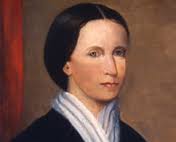
December 7, 1941
On the morning of December 7, 1941, members of a Minnesota Naval Reserve Division on the U.S.S. Ward are patrolling the entrance to Pearl Harbor. The crew spots and sinks a midget submarine—the first shots fired by the United States in World War II. An hour later the air attack begins that will draw the U.S. into the war. Private Milburn Henke of Hutchinson, serving with the American Expeditionary Force, will become the first enlisted man deployed to the European theater. *
Carl and Louise Henke had a son August 24, 1918, and they named him Milburn. He grew up in Hutchinson, Minnesota, and partook of the pastimes of boys then: hunting, fishing, working for his father, and playing baseball. Soon, he enlisted voluntarily, and was assigned to “B” Company, 135th Infantry Regiment of the 34th “Red Bull” Division which was merged with Iowa National Guard’s “B” Company, 133rd Regiment during training. **
The Red Bulls landed in Belfast on January 26, 1942, approximately one month after Pearl Harbor. Henke was promptly asked to meet with General Russell Hartle. The General inquired if he was willing to speak with reporters. “Well, if I have to, I think I can,” Henke replied. **
A publicity event welcomed him: a cheering crowd, photographers, and reporters. He had to walk down the gangplank six times so that the press could get a perfect shot of the first American soldier to set foot in Europe?! The newspapers and magazines had a feeding frenzy with Henke, but the climax was meeting the Queen and Eleanor Roosevelt.
Though highly publicized, Private Henke served like any G.I. and did his duty. In North Africa, he earned a Silver Star by saving his wounded Lieutenant by dragging him to safety under heavy fire. After liberating Tunisia, Milburn was wounded during preparations for the invasion of Italy. His back was broken when his weapons carrier rolled over onto him. **,***
Such were the sacrifices of these brave Minnesotans and Iowans! Please read this well-researched excerpt from the article “Private First Class Milburn Henke Lands In Belfast, Ireland” by Jason McDonald.
“The 34th Division fought in North Africa and Italy for the entire war, the longest serving unit in the United States Army. Very few of the 4,058 men who landed with Henke were left in the unit in 1945; only seven men who landed in Northern Ireland remained in 1st battalion in 1945.” ***
Lord, I’m so humbled and honored by this recollection of Milburn Henke and his 4,000 brothers that I can barely write. I thank You for the character given to these young men by their upbringing. I thank You for their obedience to do their duty in the face of suffering and death.
It reminds me of Your sacrifice, Father. You let Your son be torn in two by the Roman Empire, the accusations of the Sanhedrin, and the collective blindness of humanity?! Too few can recount the parental sacrifice of Your only Son, and too many are indifferent to Your pain. I include myself, shamefully, to the list.
I do not know if I possess the character to let my children die so the children of strangers can live. If I did, I would want to force my neighbor to remember this sacrifice. Likely, I would driven to rage by irreverence or indifference of the community to my pain.
Will You forgive my irreverence and indifference to the humiliation and public execution of Christ? Will You forgive Minnesota the irreverence and indifference to the humiliations and deaths of these elders from the 34th? Will You give us their strong portion of vigilance so that future generations will have the privilege to experience liberty?
Give us a heart like Henke. When and where conflict arises, let us volunteer to oppose it. Will You bless us to humbly do our duty today? We remember the existential threat World War II presented our State and Nation. We ask that You enable present and future generations to have the same resolve whether given heroic praise or no recognition for their efforts; “Well, if have to, I think I can.”
In parting, we are grateful that You acknowledge our efforts to serve. Like Henke’s story, we give You honor that You can do so much with a single choice! May we choose Your way; grace and truth, resolve and mettle.
“Little Is Much When God Is in It”
Little is much when God is in it!
Labor not for wealth or fame;
There’s a crown, and you can win it,
If you go in Jesus’ name.
Kittie L. Suffield, 1924 ****
* P.T.H. cites timeline formerly at this URL: mnhs.org/about/dipity_timeline.htm
The Minnesota Historical Society Web site, http://www.mnhs.org, is fantastic! Check it out! Images are from https://images.google.com/?gws_rd=ssl; again, an amazing resource!
** https://www.mnmilitarymuseum.org/exhibits/veterans-page/sgt-milburn-h-henke/?ccm_paging_p_b3480=2
*** http://worldwar2database.com/gallery/wwii0193
**** https://library.timelesstruths.org/music/Little_Is_Much_When_God_Is_in_It/




